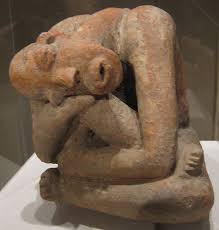












The world’s deadliest infectious disease is on the rise in the UK
A blood test could identify millions of people who unknowingly spread tuberculosis, scientists have said.
More than a million people a year die from tuberculosis (TB), making it the world’s deadliest infectious disease, according to the World Health Organisation.
Researchers at the University of Southampton discovered a group of biological markers that are high among infectious patients – and the test could be a significant step in reducing the spread of the disease.
Thankfully, in the UK figures remain low. However, TB cases in the UK increased to around 5,000 in 2023, according to the UK Health Security Agency, and are expecting to continue to rise this year.
So, how do you catch TB, and what else do you need to know about the infectious disease?
What is TB?
Emma Rubach, head of health advice at the charity Asthma + Lung UK, says tuberculosis or TB is a bacterial infection that usually affects the lungs.
“Anyone can get tuberculosis, however, the people most at risk are those who have lived outside of the UK where TB rates are high. Countries where tuberculosis is more common include Bangladesh, China, India, Pakistan, and Indonesia.
“Only 5-10% of people who breathe in TB bacteria develop symptoms and they can become ill in weeks, months, or even years after exposure,” Rubach adds.
“There are two types of tuberculosis. Latent tuberculosis, which is when you have TB bacteria in your body, but because the body’s immune system controls the bacteria and stops it from growing, you don’t experience any symptoms and can’t pass the infection on to others. Then there is active tuberculosis, when the body’s immune system can’t control the TB bacteria and you develop an infection.”
How do you catch TB?
“Most tuberculosis infections are airborne. You can contract it from bacteria coughed up by another person with the infection,” says Dr Colin Michie, associate dean for research and knowledge exchange at the University of Central Lancashire.
“There is a less common type of TB, Mycobacterium bovis, which is found in unpasteurised milk. Consuming this product can therefore put you at risk of contracting the infection, particularly if the cattle involved are not carefully screened.”
What are the symptoms of TB and is it serious?
Tuberculosis is a serious infection, which can be fatal if not treated properly.
“The poet Keats, composer Chopin, and authors Bronte and Orwell are just some of the people throughout history who have died from tuberculosis,” notes Michie.
Rubach says some people may be more at risk of suffering serious symptoms, such as those with weak immune systems, malnourishment, diabetes, people who regularly smoke, drink or take drugs, as well as children under five.
“Active tuberculosis usually affects the lungs but can also affect other parts of the body,” says Rubach. “Symptoms include a cough that lasts more than three weeks, chest pain, weight loss, extreme tiredness, loss of appetite, a high temperature, swollen glands, headaches and body aches and pains.”
Asthma + Lung UK also advises people to call 999 or go to A&E if they have a stiff neck and severe headache, it hurts to look at bright lights, you’ve had a fit (seizure), or your behaviour changes – for example, you become confused – and if you can’t move certain parts of your body.
How do you treat TB?
Rubach says both latent and active TB need to be treated with antibiotics, to help kill off the bacteria. “For latent TB, treatment usually lasts between three to six months, and in active TB, for at least six months,” she adds. “If the TB is affecting the brain or spinal cord, the treatment may last for 12 months.”
No thoughts on “The world’s deadliest infectious disease is on the rise in the UK”
Articles - Most Read
- Home
- LIVER DIS-EASE AND GALL BLADDER DIS-EASE
- Contacts
- African Wholistics - Medicines, Machines and Ignorance
- African Holistics - Seduced by Ignorance and Research
- African Wholistics -The Overlooked Revolution
- The Children of the Sun-3
- Kidney Stones-African Holistic Health
- PART ONE: DIS-EASE TREATMENT AND HEALTH-3
- 'Tortured' and shackled pupils freed from Nigerian Islamic school
- The Serpent and the RainBow-The Jaguar - 2
- PART ONE: DIS-EASE TREATMENT AND HEALTH-2
- PART ONE: DIS-EASE TREATMENT AND HEALTH-4
- PART ONE: DIS-EASE TREATMENT AND HEALTH-5
- King Leopold's Ghost - Introduction
- African Wholistics - Medicine
- Menopause
- PART ONE: DIS-EASE TREATMENT AND HEALTH-6
- The Mystery System
- The Black Pharaohs Nubian Pharaohs of Ancient Egypt
Who's On Line?
We have 63 guests and no members online
Ad Agency Remote
Articles - Latest
- Burdock – 7 Amazing Benefits & Nutrition Facts
- Ask A Nutrition Professional: Can Eating Raw Zucchini Cause Pain?
- Five things I wish I knew before starting hormones as a trans person
- ‘Hidden’ bacteria could explain chronic urinary tract infections
- Chinese scientists create mutant Ebola virus in lab
- ‘Magic mushrooms’ could be effective antidepressant after one dose, study suggests
- Does Valerian Root Cause Weight Gain? A Review By Nutrition Professionals
- No Salt Alternatives
- The world’s deadliest infectious disease is on the rise in the UK
- The Best Substitutes for Allspice
- What is gender dysphoria and how can you support your trans friends?
- Pioneering cooling boots and mittens to help stop chemo side-effect
- Ask A Nutrition Professional: How Do I Prepare Yellow Squash?
- The anti-ageing benefits of eating protein
- New analysis of cancer cells identifies 370 targets for smarter, personalized treatments
- Pattypan Squash: Nutrition Professionals Weigh In on the Right Amount.
- Ways to manage chronic pain
- The more fertile you are, the sooner you may die — study Story by Fred Schwaller
- You stand like an overcooked prawn!’ Why bad posture is the key to back pain – and 10 ways to improve yours

